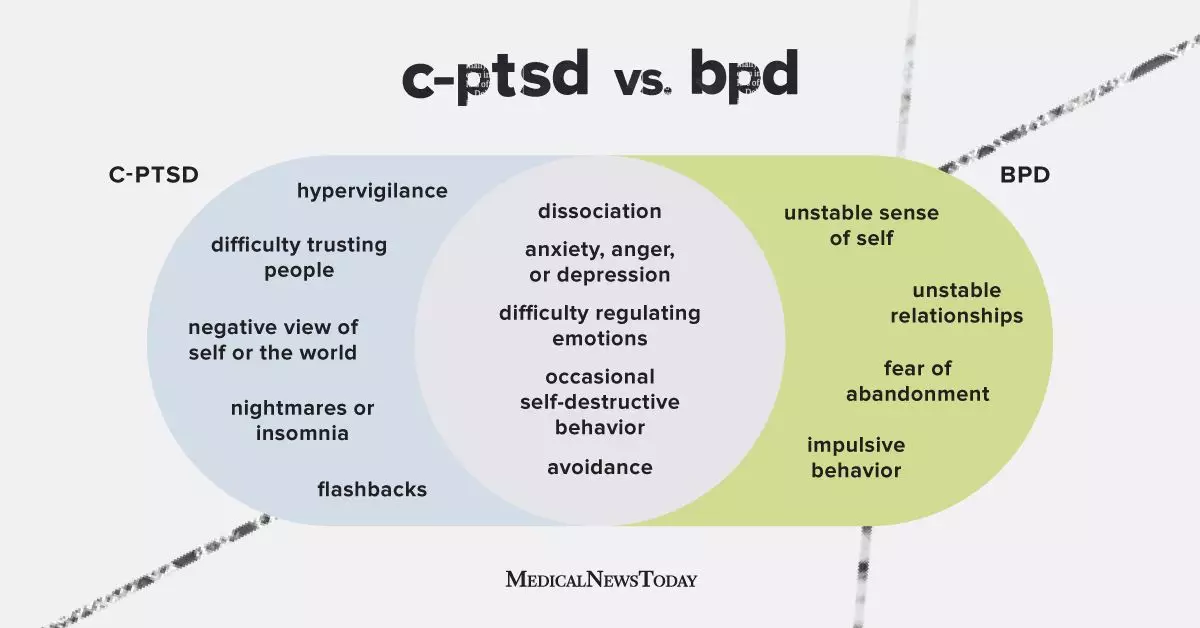Complex post-traumatic stress disorder (C-PTSD) and borderline personality disorder (BPD) are both mental health conditions that can have overlapping symptoms, such as anxiety, depression, and anger. However, they are distinct in nature. C-PTSD is often the result of chronic trauma that a person feels unable to escape, leading to difficulties in feeling safe and forming relationships. On the other hand, BPD is a personality disorder that causes unstable self-image and extreme relationships due to a lack of clarity about one’s identity.
It is important to note that individuals with C-PTSD may also experience some symptoms commonly associated with BPD, and vice versa. This can make it challenging for healthcare professionals to provide an accurate diagnosis. For example, individuals with PTSD may display symptoms that resemble those of BPD, such as fear of abandonment.
Diagnosing C-PTSD and BPD involves a thorough evaluation by a mental health professional, including clinical interviews, assessments, consideration of coexisting conditions, and input from family members or close friends. This comprehensive process helps in identifying the specific traits and patterns present in each condition to provide an accurate diagnosis.
Treatment for both C-PTSD and BPD typically involves a multifaceted approach. Trauma-focused therapy is often recommended for individuals with C-PTSD to help reduce the impact of traumatic memories and improve daily functioning. Similarly, talk therapy and medication may be used to manage symptoms associated with BPD, such as anxiety and mood shifts. It is important to seek help from a mental health professional if experiencing persistent emotional distress.
There is a possibility of misdiagnosis when it comes to distinguishing between C-PTSD and BPD due to the overlapping symptoms and lack of awareness of C-PTSD as a distinct condition. Factors such as symptom overlap, lack of awareness, gaps in memory, and comorbidity can contribute to the misdiagnosis of these conditions.
If you believe you may have symptoms of either C-PTSD or BPD, or if you are experiencing persistent emotional distress, it is important to speak with a healthcare provider or mental health professional. Seeking help early on can lead to an accurate diagnosis and appropriate treatment to improve your mental health and overall well-being.
While C-PTSD and BPD may share some similarities in symptoms and their relationship to trauma, they are distinct mental health conditions that require specific approaches to diagnosis and treatment. By understanding the differences between these conditions and seeking help from qualified professionals, individuals can better manage their symptoms and improve their quality of life.

